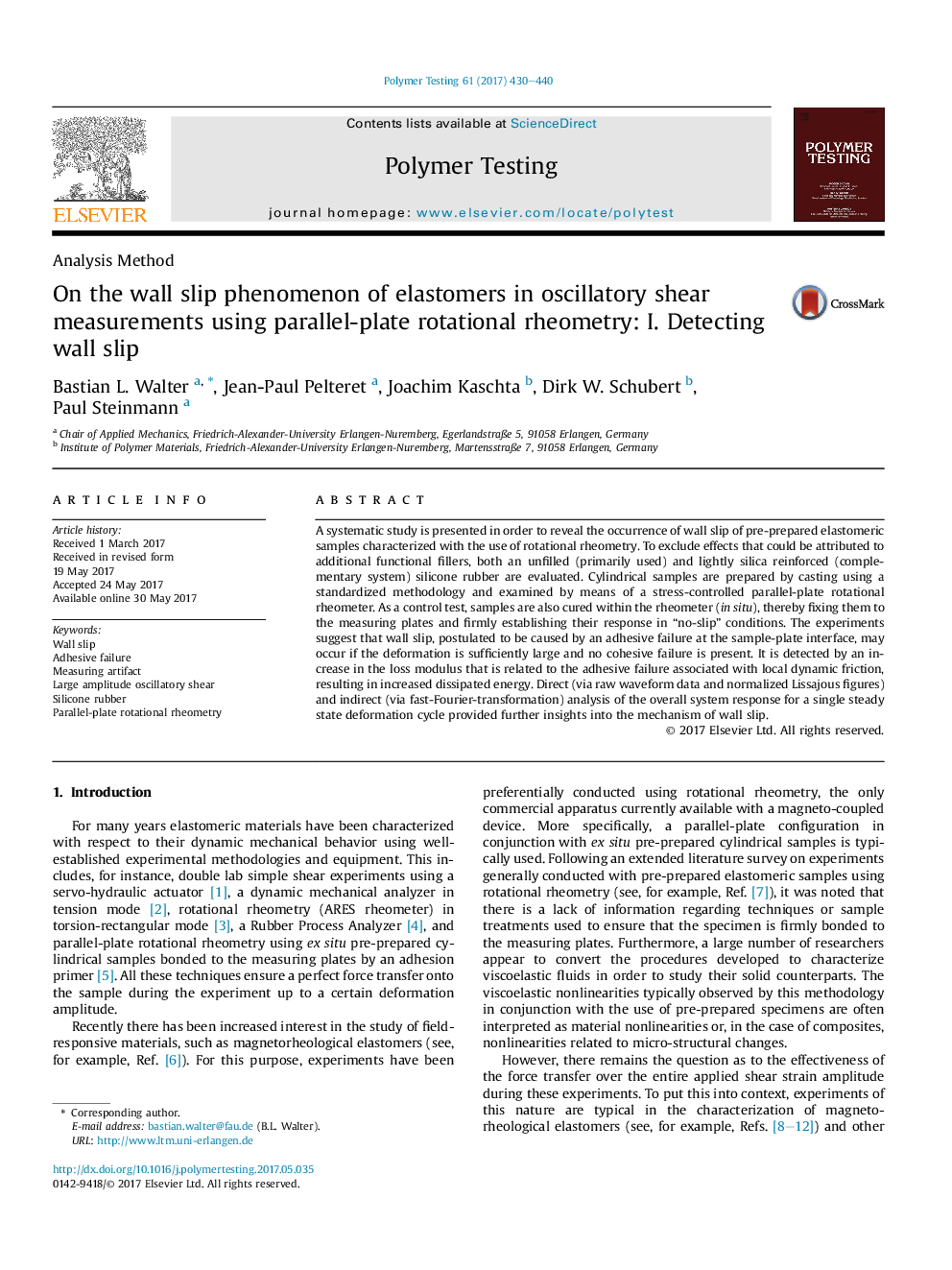| Article ID | Journal | Published Year | Pages | File Type |
|---|---|---|---|---|
| 5205351 | Polymer Testing | 2017 | 11 Pages |
A systematic study is presented in order to reveal the occurrence of wall slip of pre-prepared elastomeric samples characterized with the use of rotational rheometry. To exclude effects that could be attributed to additional functional fillers, both an unfilled (primarily used) and lightly silica reinforced (complementary system) silicone rubber are evaluated. Cylindrical samples are prepared by casting using a standardized methodology and examined by means of a stress-controlled parallel-plate rotational rheometer. As a control test, samples are also cured within the rheometer (in situ), thereby fixing them to the measuring plates and firmly establishing their response in “no-slip” conditions. The experiments suggest that wall slip, postulated to be caused by an adhesive failure at the sample-plate interface, may occur if the deformation is sufficiently large and no cohesive failure is present. It is detected by an increase in the loss modulus that is related to the adhesive failure associated with local dynamic friction, resulting in increased dissipated energy. Direct (via raw waveform data and normalized Lissajous figures) and indirect (via fast-Fourier-transformation) analysis of the overall system response for a single steady state deformation cycle provided further insights into the mechanism of wall slip.
